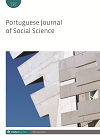
Full text loading...
 , Tiago Carvalho2
, Tiago Carvalho2
Class analysis is intimately linked to the very development and consolidation of Portuguese sociology after the Carnation Revolution. Throughout the last decades, different research programmes assessed the nature and extent of class inequalities, drawing on Marxist, Weberian and functionalist paradigms. After a highly productive and intensely debated phase, a syncretic and compact approach prevailed. While this approach captures relevant features of class inequality, its current version overshadows critical aspects of difference and misrecognition in the social space in Portugal. From an analysis of occupational, qualifications and income data, we first propose a scheme of class fractions, which draws on the relational and multidimensional approach to class originally proposed by Bourdieu and recently taken up in European sociology. Using multiple correspondence analysis and nationally representative datasets, we demonstrate the validity of this tool for studying class and linkages to fields and its potential for replication in further statistical and qualitative research.

Article metrics loading...

Full text loading...
References


Data & Media loading...

Publication Date:
https://doi.org/10.1386/pjss_00031_1 Published content will be available immediately after check-out or when it is released in case of a pre-order. Please make sure to be logged in to see all available purchase options.